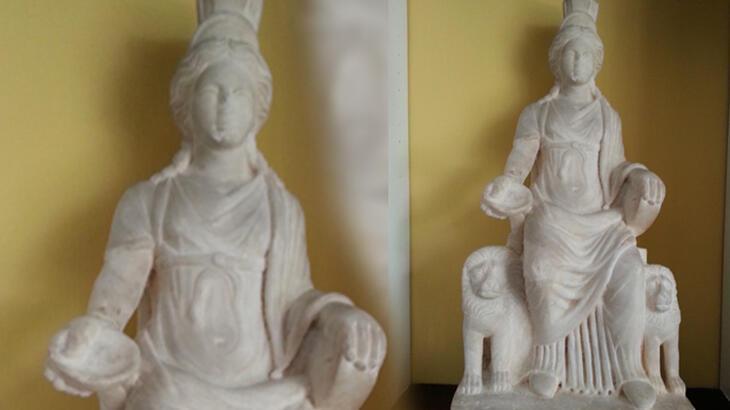Goddess Kybele returns to homeland
ISTANBUL

The statue of “mother goddess” Kybele, which was believed to be the symbol and protector of abundance and fertility in prehistoric times, is set to return to the land where she was born.
According to a written statement made by the Culture and Tourism Ministry, the 3rd century-statue Kybele, which was smuggled from Turkey to Israel, will return to Turkey from the U.S. on Dec. 12 by Turkish Airlines, after 50 years.
Kybele, which has been the symbol and protector of fertility and abundance in Anatolia, especially in the Mediterranean basin since prehistoric times, was worshiped as the “mother goddess.” The lions on both sides of Kybele symbolize her dominance over nature and animals.
The statue is believed to date back to the 3rd century A.D. by experts. In light of its typological characteristics, the type of marble used, the workmanship and the information obtained from its inscription, it is understood that the statue is of Anatolian origin.
The Roman-era statue, which was smuggled to Israel from Turkey in the 1970s, was bought by an Israeli citizen there. The citizen applied to the Israeli authorities in 2016 in order to take it to the U.S., saying that the artifact is of Anatolian origin.
The Turkish Culture and Tourism Ministry, which received the photos of the statue by Israeli authorities, determined that it had been smuggled from Anatolia. When the owner of the statue attempted to sell it in the U.S. through an auction house, the ministry asked the U.S. authorities to halt the sale.
Following a legal process after the owner of the statue filed a lawsuit against the authorities, it was confirmed that the statue belonged to the Anatolian land and the owner accepted to return the statue to Turkey.
The statue will be promoted on Dec. 13 by Culture and Tourism Minister Nuri Ersoy and be put on display at the Istanbul Archaeology Museum. Kybele will be later moved to a museum to be established in the western province of Afyonkarahisar, where it was unearthed.
















